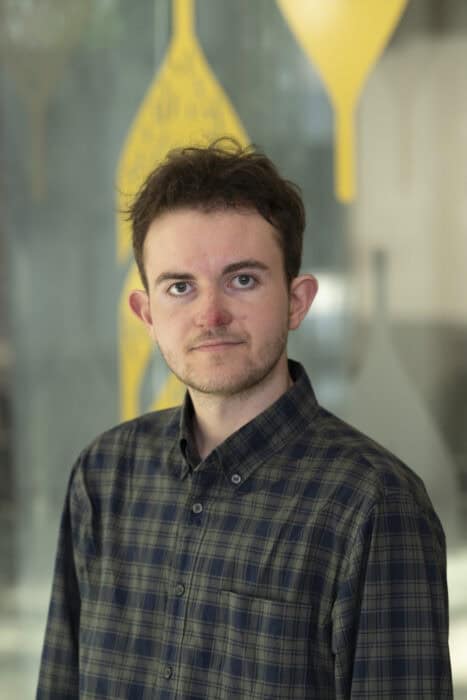Tobias Froehlich he/him

Doctoral researcher in Computing Science
Strategic Research Areas
Since I was first introduced to sustainable computing during a software development internship and completed my bachelor’s thesis in the field, it has been my privilege to research in a field that combines two of my long-standing passions, sustainability and computing. Contributing to an emerging, highly relevant field that aligns with my values fulfils me greatly and motivates me to work hard to make a lasting impact. Overall, it is my vision that through increased efficiency, sufficiency, and consistency, computing remains a powerful tool to solve some of humanity’s toughest challenges but does so without harming people or the planet.
In my research, I am not afraid to ask difficult questions and challenge the status quo. For example, my master’s dissertation investigated the shear zone between using AI for sustainability and the sustainability of AI by quantifying the carbon footprint of a deep learning biodiversity monitoring project. Due to its rapid adoption and significant environmental impacts, I am particularly interested in AI. I want to contribute to making AI fair and more efficient but also shine light on its shortcomings to inspire more mindful usage.
Before joining DiveIn, I earned my MSc in Computing with Distinction from Edinburgh Napier University.
As an international student and a member of the LGBTQ+ community, I understand how difficult it can sometimes be to feel like you belong. At DiveIn, I’ve felt that I belong from my first day on. Being part of such a diverse, supportive, and passionate environment where everyone’s differences are celebrated has made me feel welcome and enables me to thrive in academia. Hence, I am committed to promoting equality, diversity, and inclusion.
Other than sustainability, I’m passionate about ice hockey, dogs, and good books.
Federated Learning: A More Sustainable Alternative to Centralised AI Training?
Artificial intelligence’s (AI) recent growth in capability and popularity has led to an increase in the energy and resource demands of data centres. Continuous reliance on fossil fuel-generated energy results in significant operational carbon emissions, while the manufacturing of computing hardware for new data centres depletes natural resources and causes air, water, and land pollution that is hazardous to human and planetary health [1].
Federated learning (FL) presents an alternative to centralised AI training in data centres. Across a distributed network, each node trains a local AI model with its own data before the model updates are aggregated into a global model. This allows for training with less energy overhead than in data centres and reduces data transmission while maintaining model performance [2].
This project aims to investigate FL from a sustainability perspective by quantifying its environmental impact and developing novel methods to reduce its carbon footprint.
References
[1] N. Bashir et al., “The Climate and Sustainability Implications of Generative AI,” en, Mar. 2024.
[2] S. Savazzi, V. Rampa, S. Kianoush, and M. Bennis, “An Energy and Carbon Footprint Analysis of Distributed and Federated Learning,” IEEE Transactions on Green Communications and Networking, vol. 7, no. 1, pp. 248–264, Mar. 2023, issn: 2473-2400. doi: 10.1109/TGCN.2022.3186439. Accessed: Oct. 23, 2025. [Online]. Available: https://ieeexplore.ieee.org/document/9807354/.
Above all, I am keen to collaborate with partners working in the intersection of technology and sustainability. I am particularly interested in assessing and reducing the environmental footprint of existing energy-intensive computing problems and applications, particularly those that are related to sustainability challenges. Additionally, I am excited to explore novel technologies and concepts that enable low-carbon computation, such as federated learning and edge computing.
